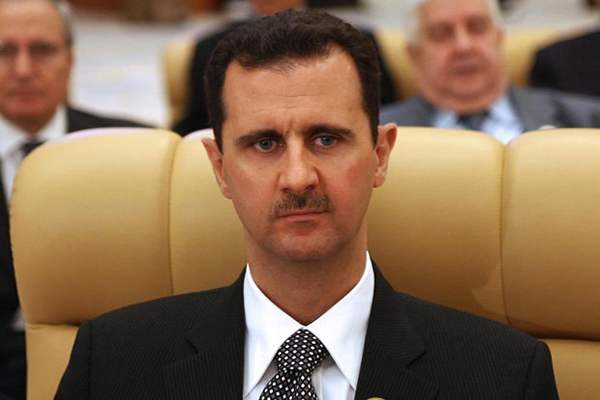
Considering the turbulent and violent times, characterized chiefly by the institutionalization of acrimony and the popularity of dogmatism that the entire Pakistani republic is currently experiencing, it is perhaps unsurprising that among the ranks of Pakistan’s already microscopic community of progressives, some individuals have begun turning to less traditionally liberal political ideas. Chief among them these unorthodox dispositions is the bizarre notion that the temporary establishment of a secular/liberal dictatorship will somehow eradicate at least half of the country’s woes and eventually give way to a thriving democracy. Though initially It may appear a tempting solution to the ideologically disenfranchised to resolve the dilemma of their circumstance by fantasizing about installing a candidate of shared inclination in a place of absolute authority who may then seek to systematically annihilate any dissenting voices, such an enterprise is philosophically contradictory and pragmatically disastrous.
Those persistent few Pakistani progressives and leftists who insist on pursuing this fantasy of “the liberal dictator” not only blatantly admit that to them the ‘people’s will’ matters solely when it is in alignment with their own perspectives but in fact, in the face of their opponents, they openly confess defeat on the intellectual front. After all, the adherent of any denomination can hallucinate grand delusions centered on the seizing of power and the outlawing of all alternatives but few ideologies tend to survive critical examination and even fewer win over popular followings. One may as well abandon any affinity for democracy in its entirety if their respect for the system materializes only when it benefits their particular interests. If the popular approval is what you claim to value above all else, which is not the wisest disposition in itself admittedly, then you must obey populist wishes unconditionally.
Realistically speaking, the idea of a progressive somehow becoming dictator of the country is already a ridiculously implausible notion: How would they obtain and hold onto power? Where would their base of support lie? And what specific policies should they enact? It appears that no one has really pondered in depth about the reality of successfully administering a ‘liberal dictatorship’. Yet for the sake of argument, even if “the right person” were to seize power there is relatively little reason to believe it would bring about the desired change. Pakistan is an extremely anarchic state where law & order is a rare commodity and the central government’s ability to exercise authority is severely constrained. Pakistan has already spent half of the time of its existence under military rule and it changed little for the average person on the street. A liberal dictator would have to neglect nearly all his principles and appease the conservative masses and established institutions in order to merely retain his position.
Additionally, even if by some miracle our progressive dictator were able to enact his will with limited opposition, there is no guarantee that they would not simply degenerate into a tyrannical despot as many modern dictators already have. Iraq’s Saddam Hussein, Syria’s Bashar al Assad and the last Shah of Iran were individuals of progressive temperament and secular inclinations but no one would dare argue that any of the three constituted desirable leaders, barring only in preference to extremist alternatives.

Rather than eliminating extremism, a Pakistani liberal dictator would have every incentive to maintain the extremist threat in order to justify his own discrepancy; for a politician it is inherently preferable to be the lesser of two evils than the greater of two intellectuals and for a dictator there is no greater gift from God than an unreasonably fanatical enemy who is not powerful enough to constitute an existential threat to the state but is capable of terrorizing the populace who then submit to the will of their despot in the hope that he will preserve them. Bashar al Assad of Syria has managed to remain in power despite the ongoing Syrian civil war, by effectively making it so that his once moderate and democracy-wanting opposition was both replaced by and partly transformed into ISIS and a cabal of other extremist organizations. This discrediting of the alternatives has benefited Damascus immensely. There is little reason to doubt that a secular Pakistani dictator would not also manufacture or nurture a serious threat against the populace in order to justify the maintenance of his regime. If our dictator is competent in enforcing his will then he will almost inevitably lean towards tyranny and if he is not he will merely be another useless oligarch.

In essence it is utterly futile to believe that at some point, ‘the right person’ will spontaneously appear and will somehow transform Pakistan into a developed country by sheer force of will. The Pakistani fondness for valuing individual charisma over well-organized political parties and efficient government machinery has rendered the populace infected by a severe messiah complex because of which they can only imagine the salvation of the country being achieved by some heroic figure of extraordinary ability. What the people must understand however, is that no great leader can hope to rise or thrive in the absence of proper institutional discipline and established functioning bureaucracies. It is more practical for us to invest our resources into the strengthening of a proper political system and its subsequent refinement over time in preference to daydreaming about implausible absurdities.
If the popular approval is what you claim to value above all else, which is not the wisest disposition in itself admittedly, then you must obey populist wishes unconditionally.
Those persistent few Pakistani progressives and leftists who insist on pursuing this fantasy of “the liberal dictator” not only blatantly admit that to them the ‘people’s will’ matters solely when it is in alignment with their own perspectives but in fact, in the face of their opponents, they openly confess defeat on the intellectual front. After all, the adherent of any denomination can hallucinate grand delusions centered on the seizing of power and the outlawing of all alternatives but few ideologies tend to survive critical examination and even fewer win over popular followings. One may as well abandon any affinity for democracy in its entirety if their respect for the system materializes only when it benefits their particular interests. If the popular approval is what you claim to value above all else, which is not the wisest disposition in itself admittedly, then you must obey populist wishes unconditionally.
Realistically speaking, the idea of a progressive somehow becoming dictator of the country is already a ridiculously implausible notion: How would they obtain and hold onto power? Where would their base of support lie? And what specific policies should they enact? It appears that no one has really pondered in depth about the reality of successfully administering a ‘liberal dictatorship’. Yet for the sake of argument, even if “the right person” were to seize power there is relatively little reason to believe it would bring about the desired change. Pakistan is an extremely anarchic state where law & order is a rare commodity and the central government’s ability to exercise authority is severely constrained. Pakistan has already spent half of the time of its existence under military rule and it changed little for the average person on the street. A liberal dictator would have to neglect nearly all his principles and appease the conservative masses and established institutions in order to merely retain his position.
Additionally, even if by some miracle our progressive dictator were able to enact his will with limited opposition, there is no guarantee that they would not simply degenerate into a tyrannical despot as many modern dictators already have. Iraq’s Saddam Hussein, Syria’s Bashar al Assad and the last Shah of Iran were individuals of progressive temperament and secular inclinations but no one would dare argue that any of the three constituted desirable leaders, barring only in preference to extremist alternatives.

Rather than eliminating extremism, a Pakistani liberal dictator would have every incentive to maintain the extremist threat in order to justify his own discrepancy; for a politician it is inherently preferable to be the lesser of two evils than the greater of two intellectuals and for a dictator there is no greater gift from God than an unreasonably fanatical enemy who is not powerful enough to constitute an existential threat to the state but is capable of terrorizing the populace who then submit to the will of their despot in the hope that he will preserve them. Bashar al Assad of Syria has managed to remain in power despite the ongoing Syrian civil war, by effectively making it so that his once moderate and democracy-wanting opposition was both replaced by and partly transformed into ISIS and a cabal of other extremist organizations. This discrediting of the alternatives has benefited Damascus immensely. There is little reason to doubt that a secular Pakistani dictator would not also manufacture or nurture a serious threat against the populace in order to justify the maintenance of his regime. If our dictator is competent in enforcing his will then he will almost inevitably lean towards tyranny and if he is not he will merely be another useless oligarch.

In essence it is utterly futile to believe that at some point, ‘the right person’ will spontaneously appear and will somehow transform Pakistan into a developed country by sheer force of will. The Pakistani fondness for valuing individual charisma over well-organized political parties and efficient government machinery has rendered the populace infected by a severe messiah complex because of which they can only imagine the salvation of the country being achieved by some heroic figure of extraordinary ability. What the people must understand however, is that no great leader can hope to rise or thrive in the absence of proper institutional discipline and established functioning bureaucracies. It is more practical for us to invest our resources into the strengthening of a proper political system and its subsequent refinement over time in preference to daydreaming about implausible absurdities.
